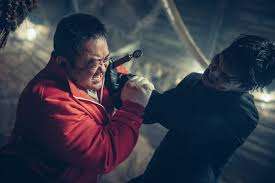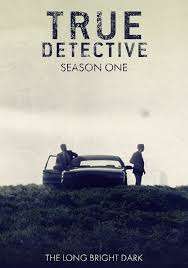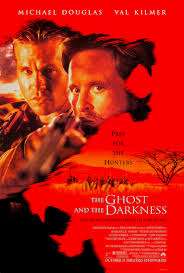Directed by Lim Dae-hee | Starring Ma Dong-seok, Seohyun, Kyung Soo-jin, Jung Ji-so
South Korean cinema has long held a reputation for genre-bending innovation, and Holy Night: Demon Hunters tries to plant its flag somewhere between action, horror, and supernatural noir. On paper, it sounds like a win: a gritty team of exorcists moonlighting as mercenaries, led by the ever-reliable Ma Dong-seok (Don Lee), facing off against a demonic conspiracy in the streets of Seoul. In execution, however, the film is a frustrating mix of slick spectacle and narrative confusion — high-impact punches wrapped around a messy plot.
Plot & Premise
Set in an alternate-present South Korea, the film introduces us to a trio of supernatural enforcers who operate under the cover of a detective agency. Ba Woo (Ma Dong-seok), the hulking bruiser with fists blessed by the divine; Sharon (Seohyun), a stoic sharpshooter with a mysterious past; and Kim Gun (David Lee), the team’s cynical tech specialist and occult researcher.

Their latest case drops into their laps via Jung-won (Kyung Soo-jin), a psychiatrist whose younger sister Eun-seo (Jung Ji-so) begins to exhibit violent, supernatural behavior. Standard possession, right? Not quite. As the hunters dig deeper, they discover Eun-seo is merely a pawn in a much larger game: a demonic syndicate embedded in the underworld, planning to unleash chaos on a scale the world hasn’t seen since the Dark Ages.
What Works
Let’s get this out of the way: Ma Dong-seok knows exactly what kind of movie he’s in, and he brings the necessary force to anchor it. Watching him punch through demons, furniture, and entire walls is a guilty pleasure. There’s a physicality to his performance that adds weight (literally and figuratively) to every action sequence. His character doesn’t speak much, but when he does, it lands — sharp lines delivered like final blows.

Seohyun’s Sharon adds balance to Ba Woo’s brute force. She’s deadly, disciplined, and far more emotionally invested in the victims than her teammates. Her performance brings a welcome seriousness and presence to a film that often leans on bombast. Jung Ji-so also deserves credit: her turn as Eun-seo, flipping between possessed and innocent with alarming ease, is one of the film’s most unsettling elements.
The action choreography is excellent. Fights are tight, bloody, and packed with supernatural flair — demon limbs regenerate mid-battle, holy water grenades explode in blue flame, and cursed weapons glow with runes mid-swing. There’s also a strong visual identity: neon-lit alleys, gothic cathedrals, underground crypts, and slick exorcism chambers all coexist in a Seoul that feels both lived-in and mythic.
What Doesn’t Work
Unfortunately, that strong visual and performance foundation is weighed down by a bloated, erratic script. The story wants to do too much. It sets up a world with rich lore — fallen angels, ancient demon cults, holy relics hidden beneath Seoul’s subway system — but rarely explains any of it. You’re expected to take huge leaps with very little grounding.
Character development is another missed opportunity. We get flashbacks to Ba Woo’s past as a priest-turned-fighter, but they’re rushed and oddly placed. Sharon hints at a dark bargain she once made, but the film never follows through. Kim Gun is comic relief with a tragic backstory that gets one quick monologue and is never mentioned again. These could’ve been opportunities to raise stakes and deepen investment, but instead they feel like fragments from a different, more complete version of the film.
Then there’s the pacing. The first 40 minutes are solid — a cold open possession scene, a couple of stylish action set pieces, and a classic “team getting back together” montage. But once the main villain enters (a demon lord posing as a corporate CEO), the plot spirals. New characters are introduced late and killed off quickly. There’s a subplot about a child prophet that seems important but disappears entirely. The final act devolves into a chaotic battle that, while visually impressive, feels emotionally hollow.
Style Over Substance?
Director Lim Dae-hee has a great eye for genre — this isn’t a lazy or careless film. The editing is tight, the color grading leans into the grimy blacks and hellish reds you’d expect from a supernatural action film, and the sound design hits hard. Demons scream like broken engines; every punch sounds like a tree breaking in half. And yet, for all its polish, Holy Night: Demon Hunters feels like it’s trying to check boxes rather than build something cohesive.

It also struggles with tone. The film jumps between graphic exorcism horror and buddy-cop banter, sometimes within the same scene. There’s one moment where a possessed victim crawls up a wall in a chilling sequence… followed immediately by Kim Gun cracking jokes about needing a raise. The effect isn’t relief — it’s whiplash.
Final Verdict
Holy Night: Demon Hunters is a stylish, high-energy swing that lands enough hits to be entertaining but misses the precision to be truly memorable. Fans of Ma Dong-seok will find plenty to enjoy in his gruff, bone-breaking performance, and action-horror junkies will appreciate the effort to bring something fresh to the exorcism subgenre. But for anyone looking for a story with weight, character arcs that pay off, or a world that truly makes sense, this movie offers sparks but not fire.
There’s a great film somewhere inside Holy Night: Demon Hunters — you can feel it in the margins. The team dynamics have chemistry, the mythology has potential, and the genre mix is ambitious. But the final product feels more like a proof of concept than a fully realized vision. It wants to be Constantine by way of The Raid, but ends up closer to Van Helsing with better punches.
That said, if this turns into a franchise — and the mid-credit scene strongly suggests it will — there’s room to build something stronger. With tighter writing and more focus, the sequel could be the exorcist-action hybrid this one only hints at becoming.
Rating: 6.5/10





